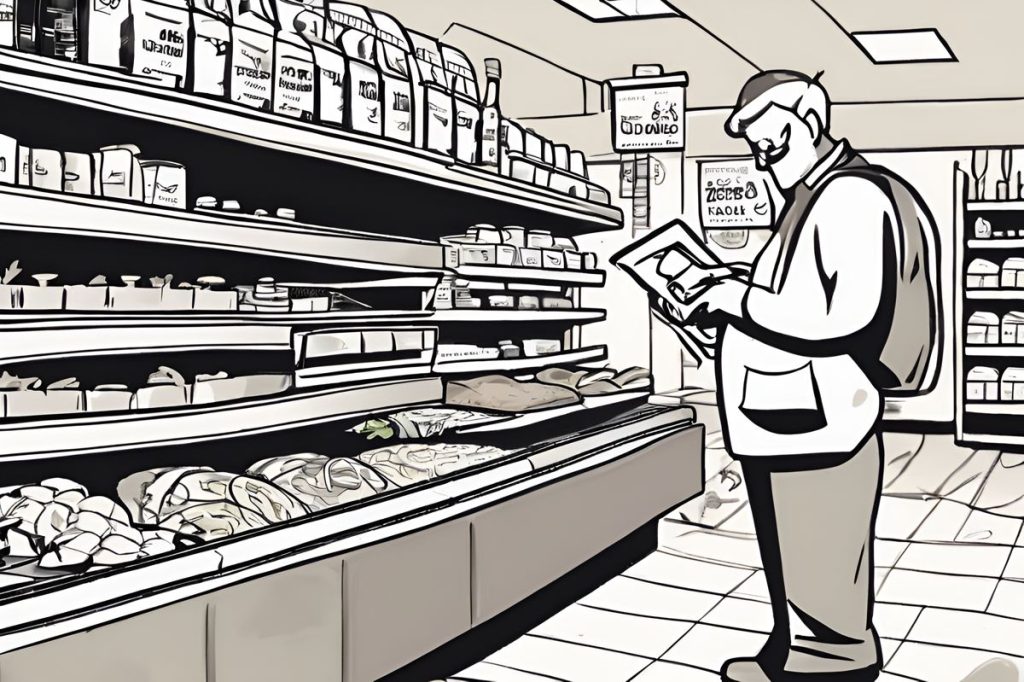Consumer Alert: Unregulated food sold on social media and unauthorized websites poses health risks due to uninspected facilities. Verify business registration, inspect labels, and report suspicious sales to protect yourself and others from compromised safety and quality.
What are the risks of buying unregulated food online?
Buying unregulated food online from sources like social media or unauthorized websites poses significant risks. These include potential health hazards from products made in uninspected facilities, leading to compromised safety and quality. Consumers must verify business registration, inspect labels for allergen and ingredient information, and report suspicious sales to authorities for food safety.
Online Marketplaces and Food Safety Concerns
A growing trend in purchasing food products online has raised the alarm for consumer safety. The consumer protection service, along with health services of the health ministry, has issued a warning regarding the risks of buying food items from unregulated sources. These products, often found on social media platforms like Facebook and Instagram, as well as on various websites, may come from facilities that have not been properly inspected. This situation poses a significant risk to consumers, as the safety and quality of these items could be compromised.
Food items such as pastries, catering delicacies, honey, jams, spoon sweets, and olive oil are among the products being marketed. Without proper oversight, there’s a real possibility that these items could be produced under substandard conditions. This not only endangers public health but can also encourage the proliferation of subpar products in the market.
Consumer Vigilance and Verification
Consumers play a crucial role in safeguarding their own health. It is imperative that they exercise due diligence when making food purchases online. One critical step is verifying the registration status of the business selling these products. Legitimate businesses should be listed in the registry maintained by the Health Services. A registration certificate serves as a seal of approval, indicating compliance with health and safety standards.
Moreover, careful inspection of product labeling is another key step before finalizing any purchase. Labels should provide clear information on ingredients, allergens, and the manufacturer’s details. These are not just legal requirements but vital pieces of information that enable consumers to make informed decisions about the food they consume.
Call to Action and Consumer Empowerment
The collective effort of consumers and authorities can lead to a safer online shopping environment. Consumers are encouraged to report suspicious food sales to competent authorities. By alerting officials, consumers can help in the crackdown on unregulated and potentially unsafe food products being distributed online. This active participation helps in reinforcing the food safety net for everyone.
In addition to reporting, consumers should also make use of the consumer line at 1429 for any concerns or queries they may have. The line serves as a resource for advice and support, empowering consumers to make safer choices. By making use of available resources and maintaining vigilance, consumers can protect themselves and contribute to wider food safety efforts.
The Importance of Regulatory Oversight
The call to action for consumers highlights the critical nature of regulatory oversight in the food industry. When authorities conduct inspections and ensure compliance, they create a safer marketplace for everyone. Uninspected facilities bypass these safeguards, and thus, the products they produce carry an inherent risk. It is essential for regulatory bodies to keep up with the changing landscape of food commerce, especially as online sales continue to grow.
The efforts by the consumer protection service and health ministry underline the importance of continued vigilance in a world where the way we purchase and consume food is rapidly evolving. With online platforms becoming increasingly popular for food purchases, the work of these agencies is more important than ever to ensure the wellbeing of consumers.
What are the risks of buying unregulated food online?
Buying unregulated food online from sources like social media or unauthorized websites poses significant risks. These include potential health hazards from products made in uninspected facilities, leading to compromised safety and quality. Consumers must verify business registration, inspect labels for allergen and ingredient information, and report suspicious sales to authorities for food safety.
How can consumers verify the registration status of a business selling food online?
Consumers can verify the registration status of a business selling food online by checking if the business is listed in the registry maintained by the Health Services. A registration certificate serves as a seal of approval, indicating compliance with health and safety standards. Consumers should also look for clear information on the labels of products, including ingredients, allergens, and manufacturer details.
What steps can consumers take to protect themselves from unsafe food products sold online?
Consumers can protect themselves from unsafe food products sold online by verifying business registration, inspecting product labels for important information, and reporting suspicious sales to competent authorities. It is essential for consumers to be vigilant and informed when making food purchases online, as unregulated sources pose significant risks to health and safety.
How can consumers contribute to wider food safety efforts when shopping online?
Consumers can contribute to wider food safety efforts when shopping online by reporting any suspicious food sales to competent authorities. By actively participating in alerting officials to potential risks, consumers help in the crackdown on unregulated and potentially unsafe food products being distributed online. Additionally, consumers can make use of resources such as the consumer line at 1429 for advice and support in making safer choices.

